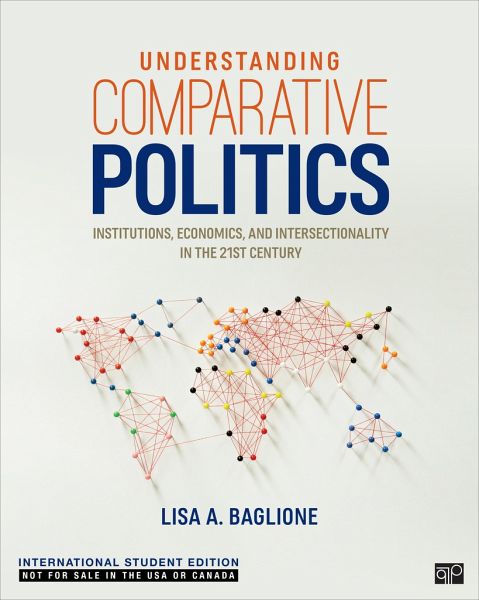
Understanding Comparative Politics - International Student Edition
An Inclusive Approach
Versandkostenfrei!
Versandfertig in 6-10 Tagen
114,99 €
inkl. MwSt.

PAYBACK Punkte
57 °P sammeln!
It s time for a new approach to help students engage more fully with comparative politics. By elevating all of the components of identity as core elements of any political system, Lisa Baglione's Understanding Comparative Politics helps students better appreciate the lived realities of people around the world. The book puts issues of race, gender, ethnicity, and religion in context, encouraging students to think critically about world regions and individual countries through the lens of current issues like social justice movements and the COVID-19 pandemic. Throughout the book, Baglione empowe...
It s time for a new approach to help students engage more fully with comparative politics. By elevating all of the components of identity as core elements of any political system, Lisa Baglione's Understanding Comparative Politics helps students better appreciate the lived realities of people around the world. The book puts issues of race, gender, ethnicity, and religion in context, encouraging students to think critically about world regions and individual countries through the lens of current issues like social justice movements and the COVID-19 pandemic. Throughout the book, Baglione empowers students to be active learners in this sometimes-daunting subject by engaging them in important questions, grounding them in foundational concepts like geography, and helping them make personal connections.












